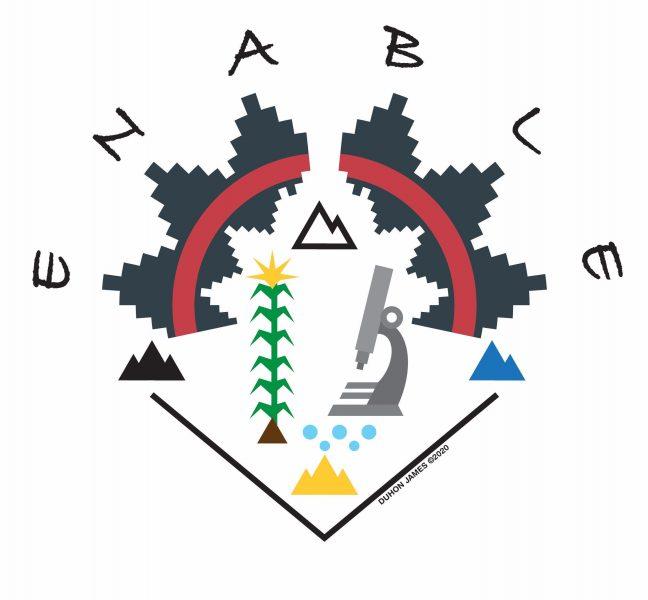In a time where many Indigenous languages are endangered, two University of Wisconsin affiliates are working to bring new life to the Navajo language by developing science terms that previously did not exist.
Graduate student and Navajo nation member Sterling Martin is the co-founder of Project ENABLE — Enriching Navajo As a Biology Language for Education — which aims to create Navajo words for modern biology terms. Martin said the idea for the project arose from his experiences struggling to communicate scientific concepts to his family members who spoke Navajo.
“It’s really hard to explain to my mom and grandma and dad who speak Navajo exactly what I’m doing in school,” Martin said. “Like the nucleus or proteins, those are big words that for a non-English first language speaker are really hard to visualize.”
Allowing students to speak to their elders in Navajo about what they’re learning is one goal of the project.
For elders, however, Martin said the implications could be even greater.
“I think coming and learning more about this would allow elders to actually take control of their health when they go to the doctors rather than relying on translators,” Martin said.
UW Post-doctoral Fellow Joanna Bundus is the other co-founder of Project ENABLE.
Bundus said the project could allow conversations in Navajo to have an entirely different context.
“These conversations that were completely inaccessible before and sort of forced people to speak English, it is now possible for them to have those conversations in their own language” Bundus said.
The first step of the project was to identify which words would be most useful to develop, Martin said. By working with teachers in the Navajo nation, Martin and Bundus identified about 250 words that would make scientific conversations in Navajo possible.
The descriptive nature of the Navajo language allows new words to reflect their meanings, Martin said. For example, the Navajo word for airplane is translated as “car with wings.” This means the Navajo linguist working on the project can create science words that will inherently convey their definitions.
“So how he approaches it is, we gave him the definitions of the word,” Martin said. “And then looking at the definitions he starts to think ‘how would I describe this in a way that’s easy to understand?’”
Language revitalization efforts for Ojibwe continue despite COVID-19 challenges
Martin said this approach was chosen over direct translations because the Greek and Latin origins of many scientific terms in English make them difficult to relate to Navajo. So far, the linguist has translated all 250 definitions into Navajo, and has created the words for terms starting with A through F.
As the words are completed, they are added onto a website dictionary, so they can be openly used by the Navajo community. Bundus said limited internet access in the Navajo nation made developing an effective website challenging. The website had to be accessible by phone and able to load quickly, Bundus said.
“The whole dictionary is small enough that it’s in the cache of a phone,” Bundus said. “So once you’ve opened the website once you don’t have to keep redownloading it. And it’s designed to load each word. The whole dictionary doesn’t load at the same time, the words load independently so it’s a very tiny amount of data.”
Martin said test runs with friends and family in the Navajo nation have so far worked perfectly. Outside of the words and definitions, Martin and Bundus plan to include example sentences of how to use each word that would be in both English and Navajo. Another possible idea was having illustrations to help visualize the words, Martin said.
“One of the big things that we’re working on that has been impacted by COVID is getting the Navajo pronunciations,” Martin said. “That way, people can hear how it’s said and learn how to say them.”
For young students who may not be pronouncing the words correctly, this would allow them to play an audio file, so their elders could hear and understand what is being described, Martin said.
Martin said the importance of the project lies in people being able to better communicate with their community.
“Getting people to speak Navajo is a big plus,” Martin said. “I think my favorite thing is when I practice some of these words with my mom and my grandma, just seeing that joy light up in their eyes like ‘oh that’s what this is, I never understood that until now.’”
‘Our Shared Future’ heritage marker to expand learning about native narratives
Linguistics professor Monica Macaulay has worked with Indigenous communities and languages throughout her entire career.
Macaulay said Project ENABLE reinforces the idea Indigenous languages are not languages of the past and can be used in a modern context to talk about novel concepts.
“These are live, vibrant languages, and just like any language they can change and adapt,” Macaulay said. “And if you want people to keep using them in the modern era, it would be pretty ridiculous to pretend that computers don’t exist and airplanes don’t exist.”


















